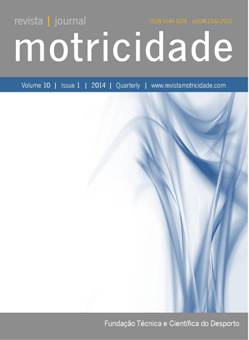Management and teaching methodology of swimming lessons in the Portuguese primary schools
DOI:
https://doi.org/10.6063/motricidade.2709Abstract
The aim of this study was to describe the management and the teaching methodology in the primary level Physical Education classes in Portugal to teach swimming motor skills. The sample included 89 public swimming-pools supervisors and 100 swimming teachers. In order to assess the management and the teaching methodology, two questionnaires were used and their results were described based on descriptive statistical analysis techniques. Data suggest that swimming classes in primary schools are designed according to the Ministry of Education guidelines. The most frequent reasons mentioned to justify the inexistence of swimming classes are related to budget constraints (60.0%) and to some commuting issues of the children to and from the swimming pool facilities (54.0%). Swimming programs are mainly conducted with older children from the year 3 and year 4 (80.1%). The classes happen once a week (60.4%) with a large number of students (13 to 16 students). The lessons focused on aquatic readiness (81.4%), developing basic aquatic skills, mostly without any teaching material. The reported data allowed us to identify some weaknesses in the primary school swimming classes, probably affecting the effectiveness of the teaching-learning process, such as the acquisition of more complex and challenging aquatic skills.
Downloads
Published
Issue
Section
License
The authors of submitted manuscripts must transfer the full copyright to Journal Motricidade / Desafio Singular Editions. Granting copyright permission allows the publication and dissemination of the article in printed or electronic formats and copyrights start at the moment the manuscript is accepted for publication. It also allows Journal Motricidade to use and commercialize the article in terms of licensing, lending or selling its content to indexation/abstracts databases and other entities.
According to the terms of the Creative Commons licence, authors may reproduce a reasonable number of copies for personal or professional purpose but without any economic gains. SHERPA/RoMEO allows authors to post a final digital copy (post-printing version) of the article in their websites or on their institutions' scientific repository.


